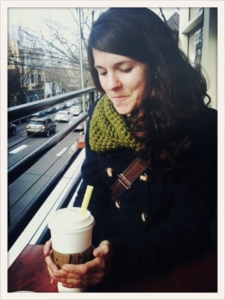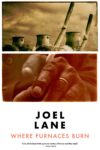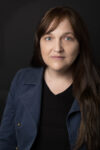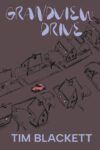 On the cover of Anne Valente’s debut collection, a swirling, star-speckled vision of the aurora borealis fills the sky over a still, snowy landscape. The stories inside By Light We Knew Our Names correspond elegantly with this image of light on the front. So different from everyday sunlight or the fluorescent glow of indoor bulbs, these Northern Lights hold more color, more possibility, more mystery, more magic.
On the cover of Anne Valente’s debut collection, a swirling, star-speckled vision of the aurora borealis fills the sky over a still, snowy landscape. The stories inside By Light We Knew Our Names correspond elegantly with this image of light on the front. So different from everyday sunlight or the fluorescent glow of indoor bulbs, these Northern Lights hold more color, more possibility, more mystery, more magic.
The thirteen stories of this collection are wonderful and wonder-filled. In “Latchkey,” a seven-year-old girl decides not to open a beautifully wrapped birthday present from her parents. She carries it around for weeks, unopened, instead. Others urge her to open the gift, but “when she looks down at the package, at its paisley edges and purple string, she wonders if what lies beneath could possibly be better than those colors, that pattern, if what’s known is ever better than what isn’t.” Valente experiments with this possibility in her fiction — can what’s unknown be more powerful than what’s known? The resulting narratives are powerful, indeed. They provide readers with inexplicable, evocative events: a loud, rumbling noise that only an unhappy young couple seems to hear; a baby inexplicably drawn to a strange round flower; piles of tea that mysteriously appear and disappear on a woman’s lawn after her husband moves out. They call to mind the myriad emotions and occurrences that go unexplained in our own lives. They are as unforgettable as a night sky stained with color and bursting with light.
Anne Valente’s fiction has appeared in Best American Non-Required Reading 2011, The Believer, Hayden’s Ferry Review, Ninth Letter, Copper Nickel, and The Washington Post, among other publications. She currently lives in Cincinnati, Ohio. I communicated with her over email about uncertainty, permeable boundaries, and gratitude.
Liz Wyckoff: I think the stories in this collection complement each other beautifully — they really create a cohesive whole. You’re a prolific writer and I’m sure you had to leave many stories out of this collection. How did you go about choosing these particular stories and curating By Light We Knew Our Names?
Anne Valente: This book definitely changed a lot between when I first began submitting it and when it was accepted for publication. It was a two-year process of really being honest with myself about which stories fit, which stories didn’t, and which ones worked well together thematically. Since this isn’t a linked collection, I had to think about the book’s central concerns as a whole, and I considered the movement of stories too from one to the next. From the final lines of one story to the beginning lines of the next, I listened to the sound of the language for smooth transitions while also trying to keep the stories distinct in content and tone.
I recently read a wonderful Rebecca Solnit essay about the unknowable that reminded me of your fiction. In it, she quotes this line from John Keats: “. . . at once it struck me what quality went to form a Man of Achievement, especially in Literature . . . I mean Negative Capability, that is, when a man is capable of being in uncertainties, mysteries, doubts, without any irritable reaching after fact and reason.” This seems to be something you’re exploring in your stories, many of which are constructed around mysteries that have no explanation or solution, like the unnerving howls in “If Everything Fell Silent, Even Sirens” or Peabody, the shade-shifting octopus in “Mollusk, Membrane, Human Heart.” Is this concept of “being in uncertainties” something you consider important to your work?
Absolutely. This is such an astute observation, and it’s something I’ve been thinking about a lot lately in regard to fiction. I’ve been thinking in particular about a statement we so often hear about writers: They wrote until they didn’t have anything left to say. I’ve been thinking about this assumption that fiction is about saying something, and that being an author means being authorial, but what of fiction that is less about saying something definitive and more about exploring? There’s so much in this world that we don’t know, and there’s so much to discover. I love the Keats quote you’ve mentioned, particularly in the use of the world capable: it seems harder sometimes to admit what we don’t know, and to be capable of handling uncertainty. I hope I’ll always think of writing as a way of being uncertain, and of being curious about the mystery that’s everywhere around us.
Often, too, the magical elements or incidents in your stories are observed by young people. Your writing from a child’s perspective is delightful and full of wonder — it feels very true to youth. From where do you draw the inspiration for these stories?
Thank you for saying so! I’ll be honest that while writing many of these stories, I felt just as childlike as the narrators themselves. I don’t know how much I feel like an adult most of the time: I’m generally as ready to believe in magic as children. That isn’t to say that these stories are autobiographical, but I did take a cue from my own childhood for them, and from my continued sense as an adult that children might know more than we do about the world.
I’m such a fan of the first-person plural point of view that you employ in several of these stories. The voice is particularly strong in stories like “Dear Amelia” and “By Light We Knew Our Names,” in which the we refers not just to the stories’ characters, but to the larger communities in which they belong, like young women in America on the cusp of World War II or victims of domestic abuse. What are the advantages and challenges of writing from this perspective?
Much like the permeable boundary in many of these stories between magic and realism, I really love the permeability of first-person plural and how it can destabilize a narrative, or create uncertainty. Though I know some readers like knowing definitively who the we is, I like the unknowability that this perspective creates. I like not necessarily knowing the distinction between we and them, and the breaking down of borders that this allows. I find that the collective first offers me a lot of freedom as a writer, in terms of telescoping in and out of perspectives. It can be a challenge at times to make certain moments fully believable, such as convincing the reader in “Dear Amelia” that all of these girls-turned-bears read the newspaper about Amelia Earhart’s lost plane at the same moment, but I appreciate the degree of surrealism that moments like this provide.
Do you have any favorite stories by other authors written in first-person plural?
Clare Beams wrote an amazing first-person plural story a few years ago, “We Show What We Have Learned,” that was originally published in Hayden’s Ferry Review and included in Best American Non-Required Reading 2011. Molly Patterson’s “Honors Track” is also a great example, published in The Atlantic a couple of years ago. I also absolutely love the use of first-person plural in Jeffrey Eugenides’s The Virgin Suicides, and also in Justin Torres’s We the Animals, which he uses for most of the book before the narrator separates himself into first-person singular.
In “Cicada, Snail Shell, Origin,” the great essay you recently published at Passages North, you describe the rhythm of your writing process as: “Write. Run. Rinse. Repeat.” How important is the regularity, the repetition, of your writing routine, and how long did it take to develop a system that works for you?
Routine has become essential to my writing process. I’m pretty comfortable changing variables — though I usually write at home in the morning, I can get just as much done at a library or coffee shop in the afternoon — but I tend to write every day and aim for a certain word count. I’m pretty regimented. Not everything I write is useful, and not everything stays on the page. But it’s important to me to get down the words. It took a while for me to establish this routine, but it became crucial after my MFA when I was working full-time, teaching five classes a term; in order to keep writing and to finish the collection, I had to make writing a top priority. The habit stuck, and my hope is that the routine has made me a better writer out of sheer daily practice.
In the past two years, you’ve published two books: a fiction chapbook, An Elegy for Mathematics, with Origami Zoo Press, and now this collection, By Light We Knew Our Names, with Dzanc Books. How would you describe the feeling of publishing a book, as compared to the feeling of getting an individual story published? Does the existence of these books change the way you think of yourself as a writer?
It’s a great celebration to have an individual story picked up for publication, and I assumed that publishing a book would carry the same feeling of accomplishment. It most certainly does, but more than anything else, publishing a book has come with more gratitude than I can adequately express. I’m so grateful to the community around me that it makes me a little teary just thinking about it. This book wouldn’t exist without my family, my husband, my friends, my mentors, or the editors who championed these stories. When I think about all of the people who helped make this book happen, it makes me feel incredibly grateful — and incredibly lucky — that it’s out in the world.
What has your experience working with small indie presses been like?
It’s been wonderful, and I’m beyond thankful that I get to work with Dzanc. I’ve read so many of their books that it was a real dream come true when they picked mine up for publication. I haven’t worked with a major publisher for comparison, so perhaps these things exist there too, but I feel very fortunate that I’ve had a hand in the publication process — from editorial decisions to booking readings — while also feeling like I’m in excellent hands with a press that knows far more than me about the world of publishing. I couldn’t be happier to work with Dzanc, and I’m super excited about the work they’re putting out into the world.
Who are some of your favorite writers publishing in the indie lit scene right now?
Oh, so many. I’ve read some amazing books lately on independent presses — Amina Gautier’s At-Risk, Kelly Luce’s Three Scenarios in Which Hana Sasaki Grows a Tail, Lia Purpura’s On Looking, Melinda Moustakis’s Bear Down Bear North. You mentioned Rebecca Solnit, and I absolutely loved Infinite City. I’ll drop what I’m doing to read anything by B.J. Hollars, Susan Steinberg, Amber Sparks, Seth Fried, Matt Bell, Megan Mayhew Bergman or Maggie Nelson, though I know some of these writers are publishing with major presses. Though I have my favorites, I’m perpetually interested in reading new writers and new books. I’m very excited to read Diane Cook’s Man V. Nature, which releases this fall, and Leesa Cross-Smith’s Every Kiss a War.
I see on your website that you have a novel excerpt forthcoming at Threadcount. Exciting! What can we expect from the novel?
I’ve been working intensively for the past year on a novel about a series of mysterious house fires that erupt across a community after a mass school shooting. It’s been emotionally rigorous work, which is in part why my writing routine has been so crucial. I’ve had to maintain the right headspace for it. I’m in the final stages of revision right now, and I’m also working on a collection of new stories about the city of St. Louis.
Liz Wyckoff’s short fiction has been published in Quarterly West, Annalemma, and The Collagist, among other journals, and her book reviews and author interviews can be found online at The Rumpus, Electric Lit, and Tin House. She lives in Madison, Wisconsin where she works in marketing and publicity for Barrelhouse and A Strange Object.
This post may contain affiliate links.







